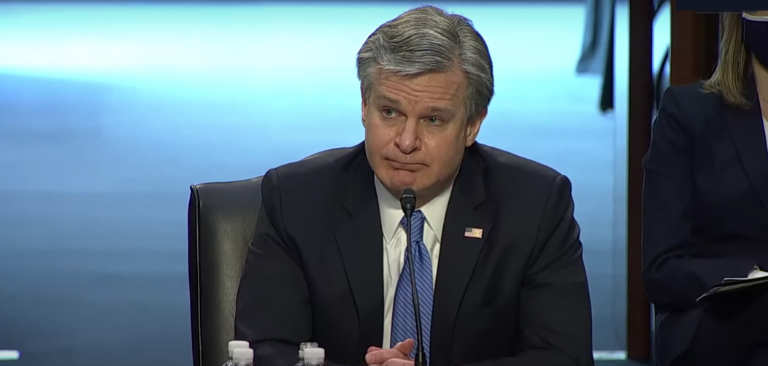Like many others, the FBI is trying to seize an opportunity to use the January 6 protests in Washington as an excuse to sneak in some dangerous and unrelated policies that happen to suit their particular agendas.
For FBI Director Chris Wray, it’s law enforcement’s now multi-decade obsession with encryption. The US is not the only place where the fallacy persists that police and various spy agencies don’t already have enough tools and powers to prevent anything from actual terrorist attacks to unrest like that seen on Capitol Hill.
It’s a convenient way to deflect from any of law enforcement’s own internal and operational shortcomings that make them incapable of fully utilizing what they already have at their disposal to protect the public and institutions. Instead, like Wray demonstrated during his recent testimony before the US Senate, they play the blame game and time and again, encryption – the backbone of a secure and safe internet – comes up as “the enemy.”
When it comes to the January 6 events, most all data about participants has been openly available on social networks, and based on it, hundreds have been charged so far, as some reports note.
But in his testimony, Wray somehow managed to divert from that fact to the “need” to access content of people’s devices as a major problem faced by law enforcement, and one, as he said, that “continues to grow.”
“Increasingly, commercial device manufacturers have employed encryption in such a manner that only the device users can access the content of the devices,” he told the Senate Judiciary Committee on March 2.
God forbid that “only the device users can access the content of (their own) devices” – what kind of world would we be living in? /s
But that aside, what might be the solution, according to the FBI? The answer: undermining the whole of the internet.
But Wray doesn’t call it that, because it has been said and explained so many times already that he is probably aware the message would fall flat if phrased as “encryption backdoors.” That’s because once code is added to encryption that can allow one party to break it and access content – any manner of “bad actors” from terrorists to unfriendly states will be able to do the same. In other words, a security nightmare for everyone involved.
In fact, he was explicit in offering the committee a straw man argument, while cynically criticizing one:
“Too much of the debate over lawful access has revolved around discussions of this ‘backdoor’ straw man instead of what we really want and need.”
And what do they want and need?
According to Wray, “(…) responsibly managed encryption, encryption that providers can decrypt and provide to law enforcement when served with a legal order.”
In other words, encryption backdoors.













